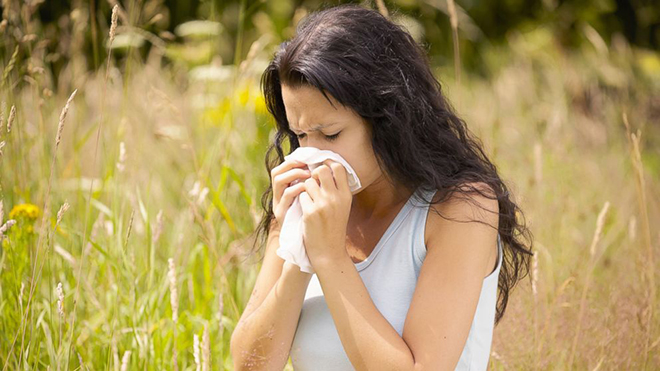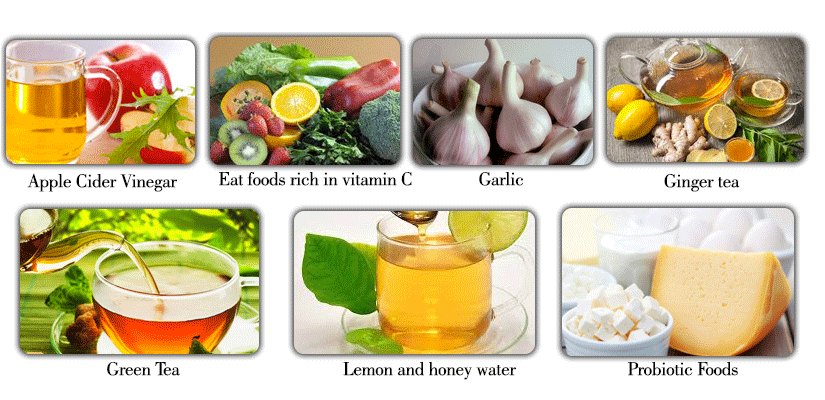How can Ayurveda kick allergy out of the body naturally?
Allergy and Ayurveda:Overview
‘ALLERGY’ is an overreaction of the body’s immune system to certain substances which it misidentifies as harmful. This overreaction of the immune system is called an ‘allergic reaction,’ and the substances which trigger such a reaction are called ‘allergens.’
An allergy or allergic reaction generally manifests itself in the form of some commonly-occurring disorders of the skin and respiratory system. These disorders include eczema, hives, asthma, hay fever, and food allergies.
‘AYURVEDA’ is an ancient, holistic (whole body) system of medicine, which is based on the belief that health and wellness depend on a delicate balance between the mind, body, and spirit. The core concept of Ayurveda is that an equilibrium of the body’s three fundamental bio-elements or ‘Doshas’ —Vata, Pitta, and Kapha — leads to good health.
The main aim of Ayurvedic medicine system is to prevent the occurrence of diseases and to promote health and well-being. To achieve this aim, Ayurvedic experts mainly depend on the use of herbal formulations to treat diseases naturally, and also recommend dietary and lifestyle changes to patients suffering from different disorders.
Ayurvedic Perspective of Allergies
According to Ayurveda, allergies are generally a result of an excess of the Kapha and Pitta dosha, or the earth and fire elements. Ayurveda believes that the main causes behind the occurrence of allergies are accumulation of toxins and low immunity.
More specifically, the Ayurvedic viewpoint of allergies is that ‘genetics’ is the primary reason that causes an individual to suffer from allergies. These are considered to be a result of the one or all of the following conditions:
- Weak agni (digestive fire)
- An individual’s state of vykruti (imbalance)
- The presence of ama (undigested or poorly digested food which turns toxic and interferes with the bodily processes).
The management of allergies naturally with the help of Ayurveda involves the diagnosis of the root-cause of allergy for every individual patient, and its subsequent treatment.
How Ayurveda can treat allergy naturally?
Ayurveda can effectively kick allergy out of the body naturally with the help of herbal formulations which can cure different types of allergies by:
- Detoxifying the body by eliminating toxins.
- Strengthening the immune system.
In addition, Ayurveda practitioners also suggest some necessary modifications in the diet of patients suffering from allergies.
More specifically, Ayurveda is beneficial in treating Vata, Pitta and Kapha types of allergies in the following ways:
Vata allergies
- According to Ayurveda, Vata allergies are caused because of dryness, and their symptoms mostly include dry cough with, insomnia and anxiety.
- To cure Vata allergies,Ayurvedic practitioners recommend that patients should drink tea made from ginger root (Zingiber officinale) 4-5 times a day, and also inhale sesame oil.
Pitta Allergies
- These allergies cause excessive heat in the body, and are associated with symptoms like burning eyes, rashes and loose stools.
- Ayurvedic cure of these allergies involves the consumption of tea prepared from Neem leaves (Azadirachta Indica), and also a mixture of warm milk and half a teaspoon of turmeric (Curcuma Longa) powder. Moreover, patients are also asked to inhale coconut oil 2-3 times a day.
Kapha allergies
- These allergies are developed due to moist, humid conditions and their symptoms include slow digestion, and mucus production.
Management and Treatment of Allergies
- For relief from these allergies, Ayurvedic experts recommend that patients should drink one glass of warm water with half teaspoon of liquorice (Mulethi or Glycyrrhiza glabra), after every meal. Another method of treatment is to take half a teaspoon of ‘Sitopaladi’ churna with honey, three times a day.
- Other than the above-mentioned Ayurvedic treatments for different types of allergies, there are some excellent herbs which are considered to be extremely beneficial for relief from allergy in general
The widely-known anti-allergy herbs include:
- Haridra (Turmeric Rhizome -Curcuma Longa)
- Neem (Azadirachta Indica)
- Ashwagandha (Withania somnifera)
- Tulsi (Ocimum sanctum)
- Shirish (Albezzia lebbock)
- Dalchini (Cinnamomum zeylanica)
- Mulethi (Glycyrrhiza glabra)
- Bharangi (Clerodandrum serratum)
- Kantakari (Solanum xanthocarpum)
- Manjistha (Rubia cordifolia)
- Vaasa (Adhatoda vasica)
- Anantmool (Tylphora asthmatica)
Ayurveda can effectively treat allergies in a natural manner if the patients follow some strict guidelines with regard to changes in diet and lifestyle habits, along with taking herbal formulations. In specific, patients suffering from allergies can gain benefits from Ayurvedic treatment if they remember that:
- Heavy foods — like meats, nuts, sugar, dairy products, and processed foods — should be avoided
- Iced beverages should be avoided
- Plenty of warm water should be consumed throughout the day
- Eating habits should be altered, so that the lunch is a hearty meal while the dinner is a light meal
- Exercise should be made a part of daily routine, for stimulating agni and eliminating ama
- Yoga breathing practices should be tried in order to relax the body and the mind
- Adequate sleep should be ensured
- Intense stress should be avoided because it can aggravate allergies
- Herbal oil massage should be done to improve blood circulation and eliminate allergy-causing chemical toxins.
In addition to the above-mentioned guidelines for allergy management, there are also some other Ayurvedic approaches to treat allergies. These approaches are listed below:
- Use a Neti pot once or twice a day, with a weak saline solution and distilled water, to reduce the heaviness of Kapha.
- Practice ‘Nasya’ (nearly one hour after using Neti pot) by dabbing some sesame oil spiked with eucalyptus/camphor in both nostrils
- Practice a daily ‘Pranayama’ routine which should include Kapalabhati (skull-polishing breath), Dirgha (three-part breath), Ujjayi (ocean-sounding breath), and Bastrika (bellows breath)
- Take a Kapha-reducing diet that includes warm, light, natural, and cooked foods which can be easily digested
- Increase the use of ‘warming’ spices — like ginger, cinnamon, black pepper, turmeric, and cumin — in cooking
Conclusion:
- Ayurveda can kick out allergies from the body in a safe and natural manner. However, it is advisable that people suffering from allergies should have their allergy diagnosed properly, and should consult a registered Ayurveda practitioner for guidance related to the best diet plan for them, as well as the use of the most suitable herbal formulations to cure the allergy.




